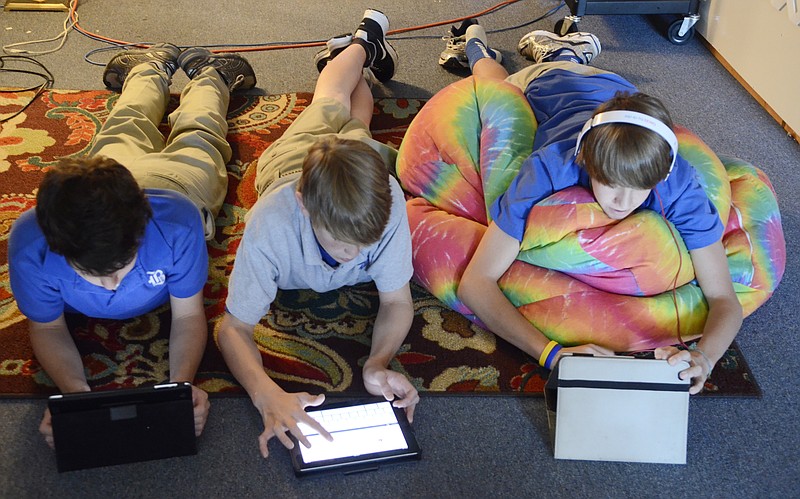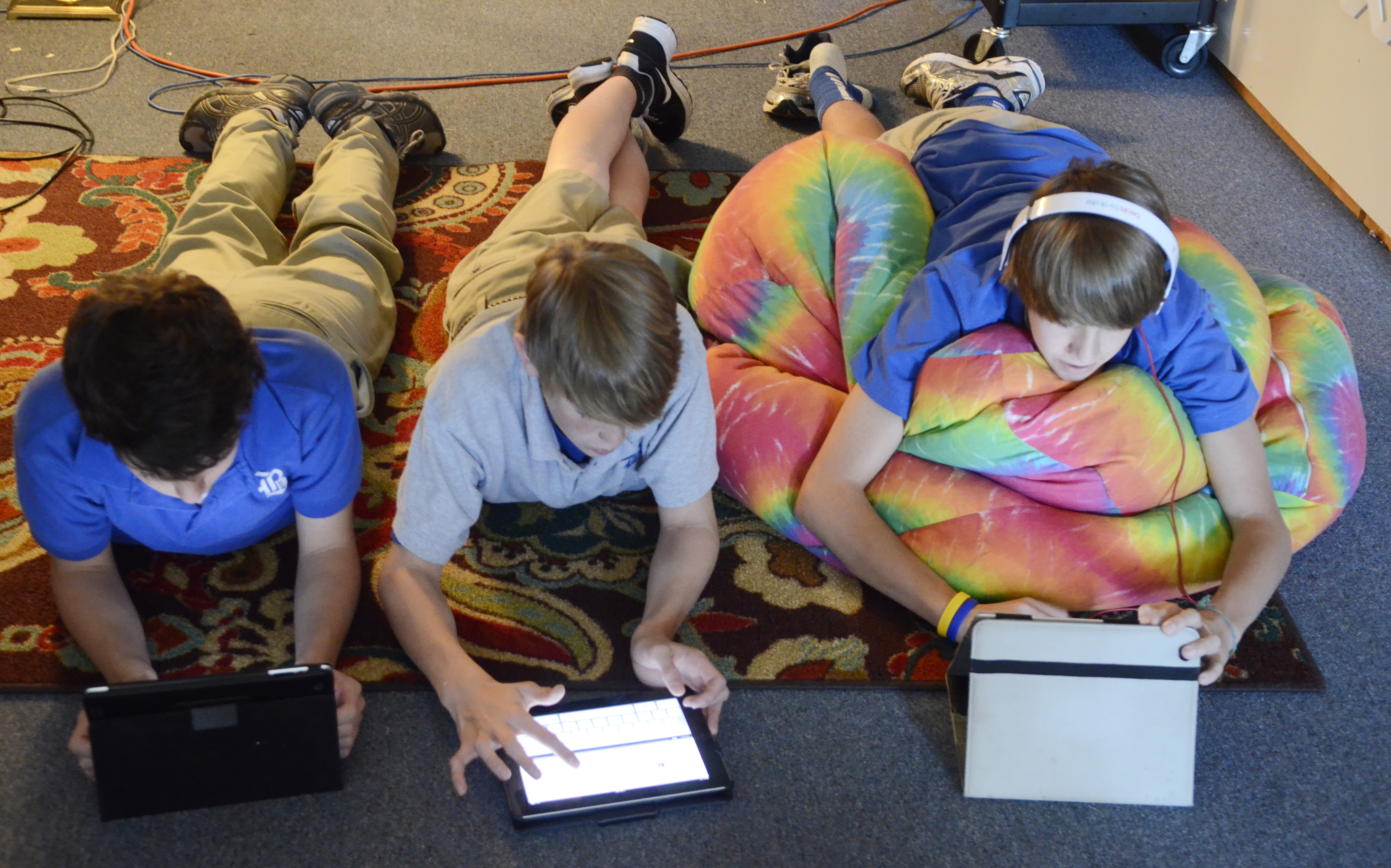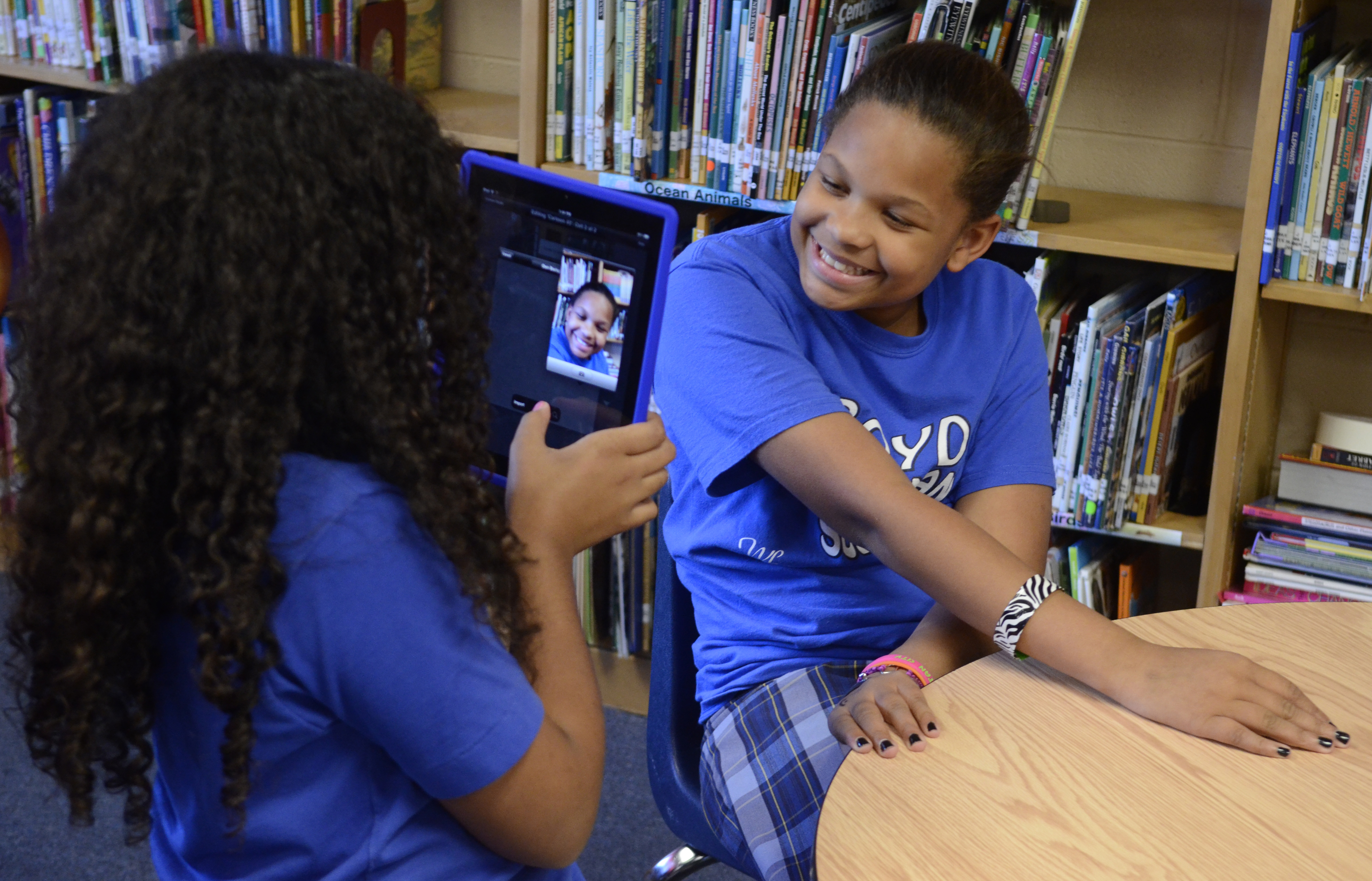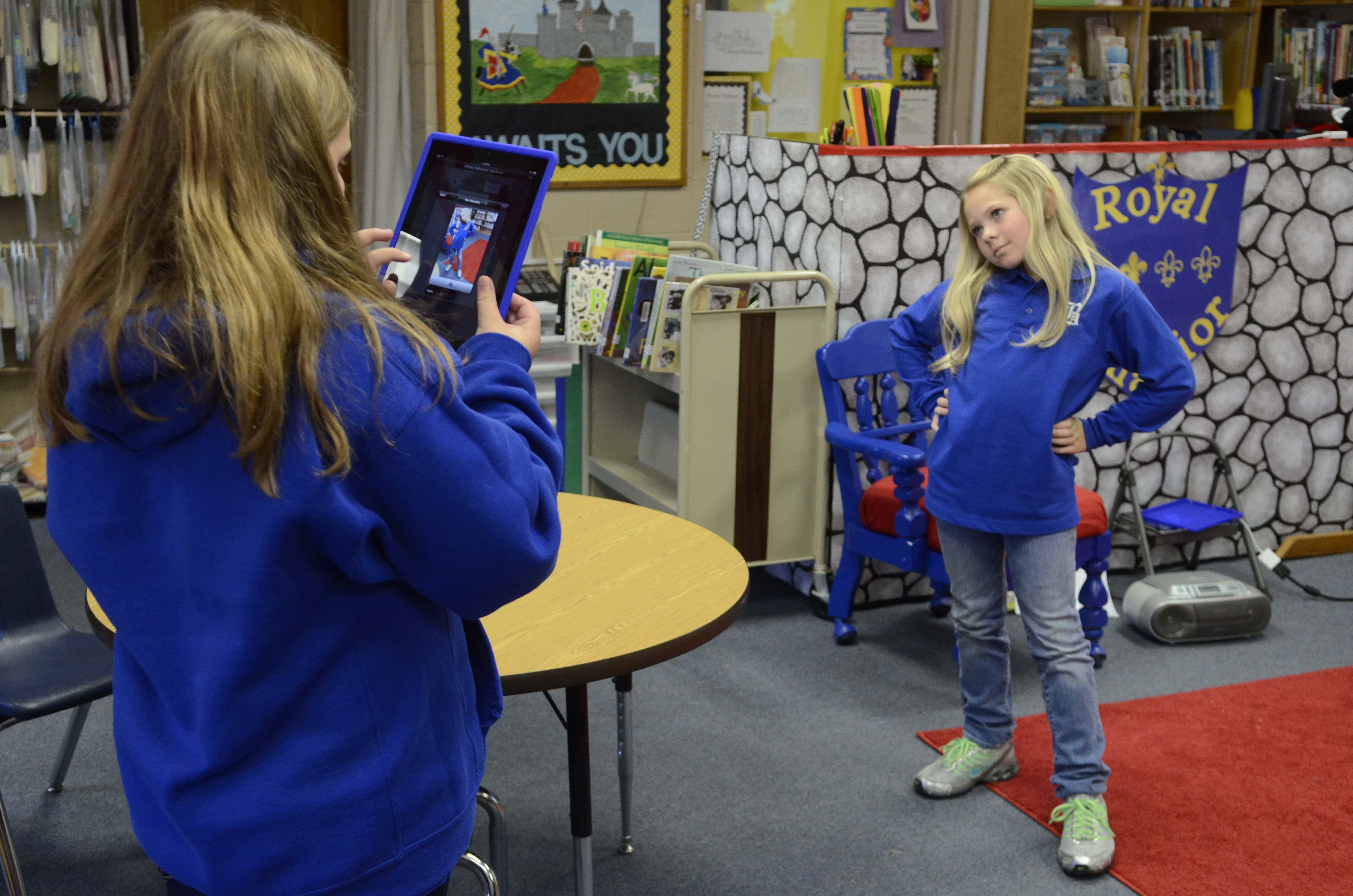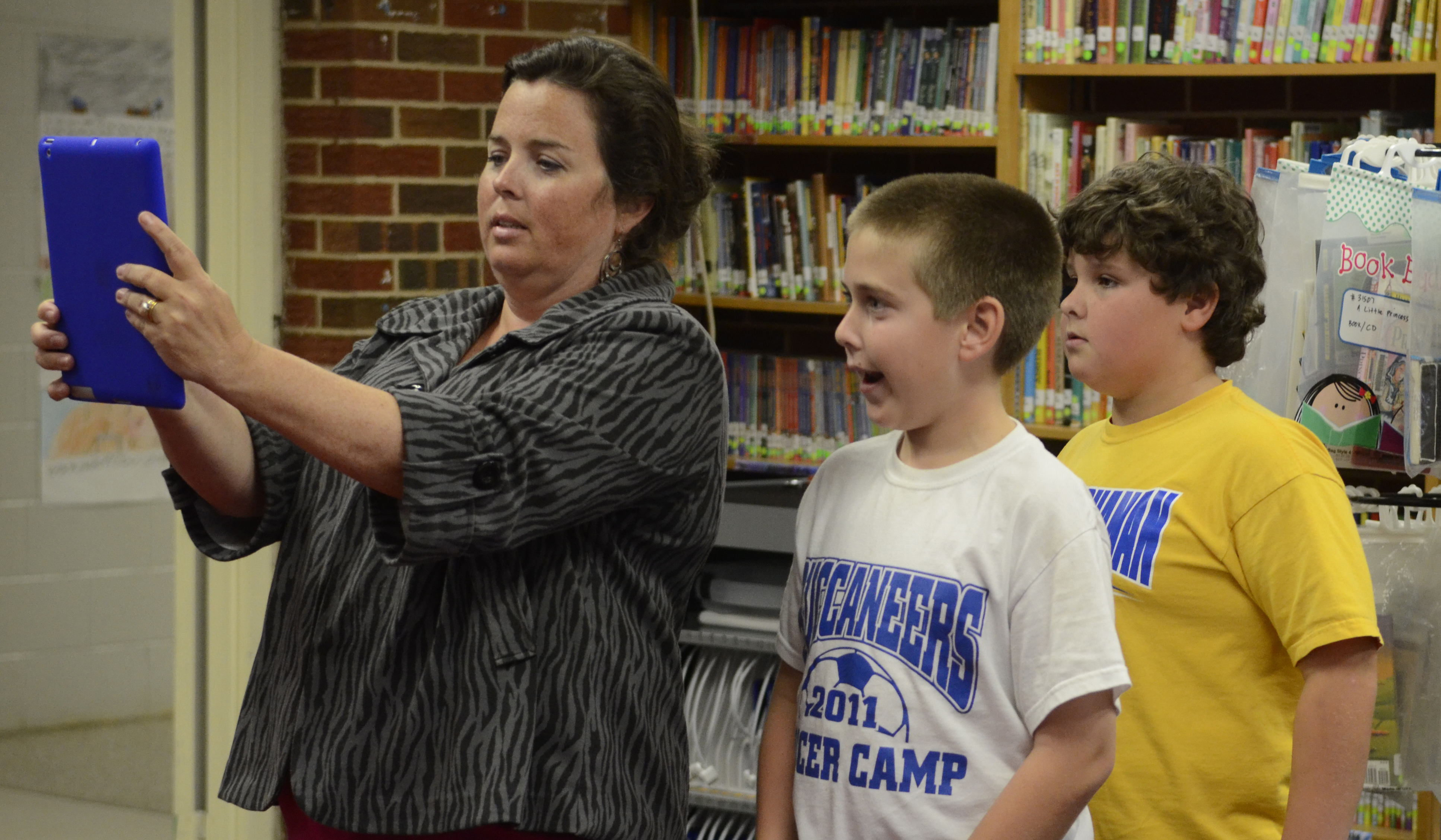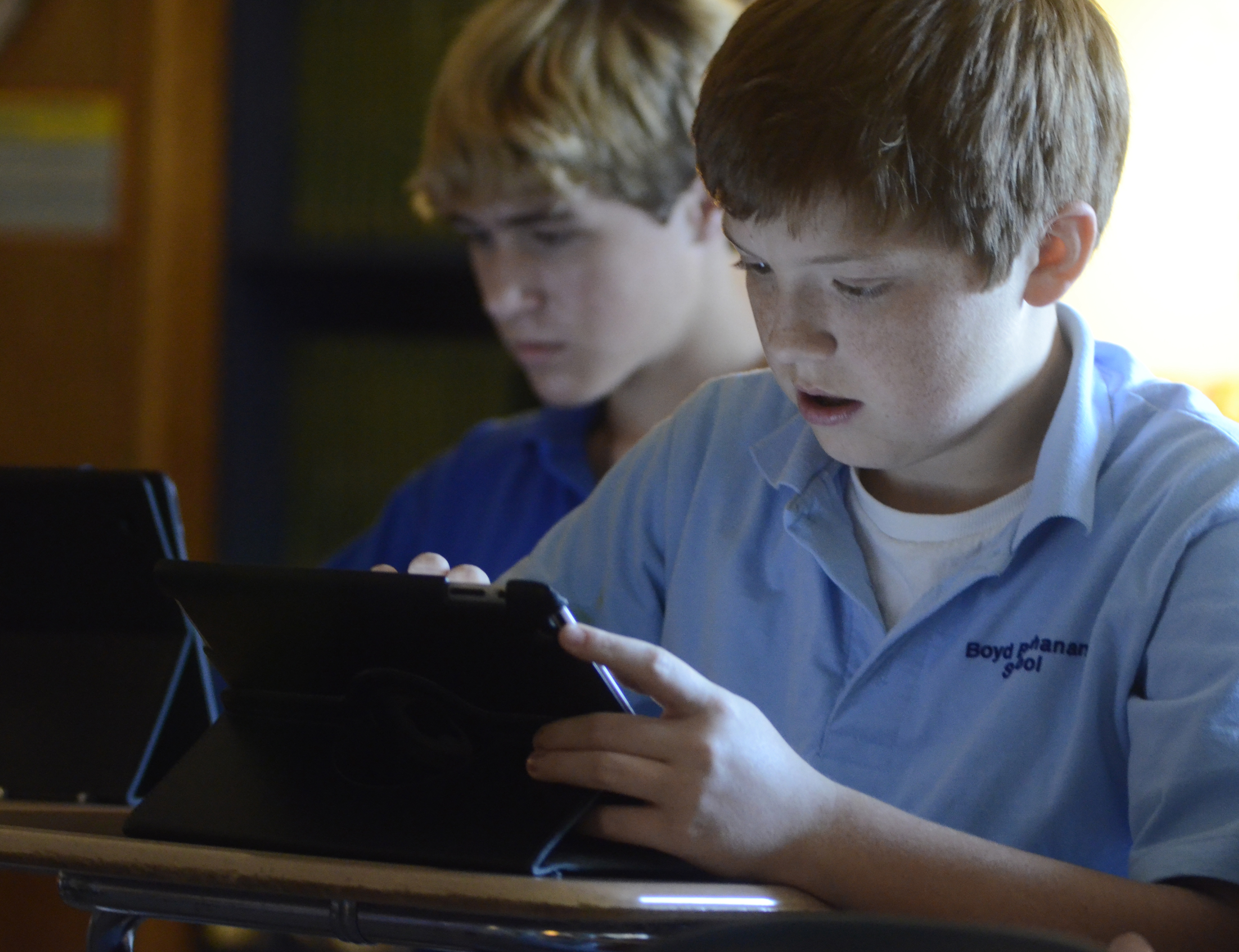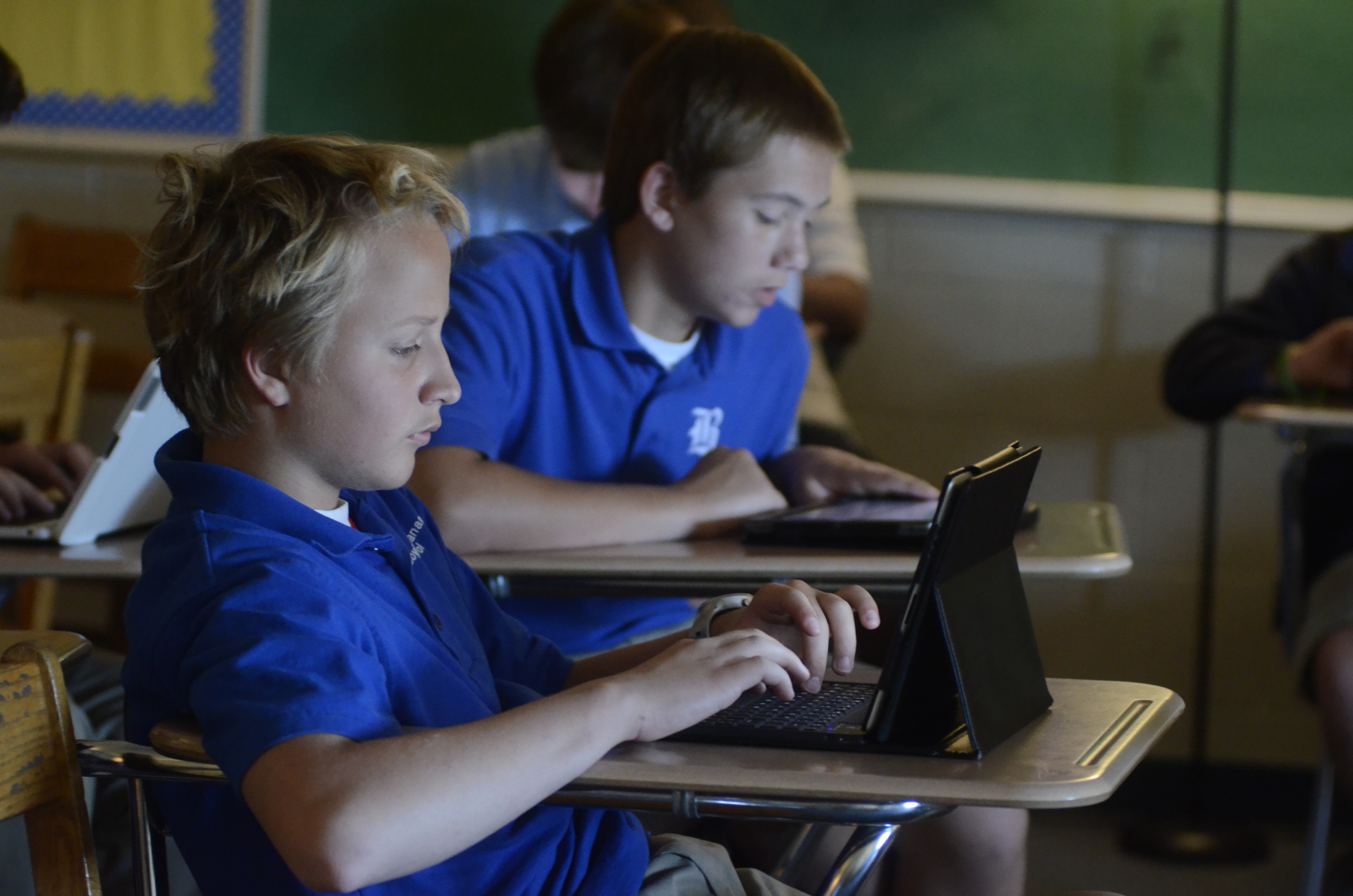During an afternoon honors chemistry class, teacher Perry Key never puts down his iPad 2.
As he walks around the Baylor School classroom, students practice matching the names and formulas of polyatomic ions. Everything Perry writes with his pencil-shaped stylus on an electronic worksheet is instantly projected to a big screen up front.
Looking out at his 18 students, Perry sees four huddled around iPads of their own. By next fall, all Baylor students will be working on iPad 2s.
Many educators say that tablet devices like the iPad will eventually transform education and could even replace textbooks. But area private schools are jumping into the iPad game at different speeds. Some are waiting for a more-perfected device, while others are embracing what's available now.
The rush to build tech-savvy classrooms with the latest tools, now tablets, has reignited a national conversation on the proper role of technology in teaching and learning.
"Technology for technology's sake isn't necessarily the answer," said Chad Dorsey, president of the Massachusetts-based Concord Consortium, a nonprofit group focused on improving teaching through technology.
Dorsey is encouraged to see more and more schools implementing hand-held technology. But he said it takes more than just the initial purchase. Spending money on tablets isn't worthwhile unless teachers know how to use them.
"Simply putting the devices in the hands of teachers and students won't magically make a difference," he said.
Required Purchase
Baylor teachers were given iPads this year to learn the ins and outs of their capabilities. All students will be required to purchase the $500 device by the fall.
Dean of Academics Scott Dering said teachers next year will use them more thoroughly in lessons, especially since more and more textbook companies are looking to deliver their products electronically. He said the books that are available cost 25 to 60 percent less than their paper counterparts.
"I wouldn't be surprised if in five or six years, a lot of kids are walking around with just [iPads] instead of a big, heavy backpack," Dering said.
Baylor administrators admit the iPad isn't perfect yet -- for instance, the tablet doesn't support Flash software.
But they're far more impressed with its many applications.
English instructor Jim Stover has started grading papers and assignments on his iPad, saving a lot of paper.
"Basically, this is all I take home anymore," he said, rather than bags overstuffed with papers and books.
From Computers to Tablets
A presentation from Apple convinced leaders at Boyd-Buchanan School to purchase iPad 2s for all sixth- through 12th-graders, who got their devices this fall.
Director of Operations Mike Kirk said the school spent about $750,000 for the tablets and infrastructure upgrades.
"The biggest thing for us was the availability of the educational apps that are out there," he said.
For the 530 students with the devices, most day-to-day research and work is transitioning away from computers and onto iPads, Kirk said.
"This is the first educational tool that has been introduced where the kids know more about it than the teachers and adults do," he said.
But not all private schools are convinced that tablets are right for the classroom.
"Right now, the iPad is simply not, in our estimation, an institutional device," said Randy Tucker, headmaster of Girls Preparatory School. "It's interesting for individuals, but that's kind of the end of it."
All GPS students in eighth through 12th grades carry laptops from class to class.
"Every one of our classrooms now is a computer lab," Tucker said.
GPS is waiting for a better tablet device with a full keyboard and widely available interactive textbooks, Tucker said.
At McCallie School, students are allowed to carry laptops or tablets, though no one device is required.
"There really are lots of different ways to enhance and expand students' technological skills," said Headmaster Kirk Walker. "Our approach has been more multidevice, multiplatform."
That could all change once digital textbooks are readily available.
"I think that will probably be a game-changer," Walker said.
